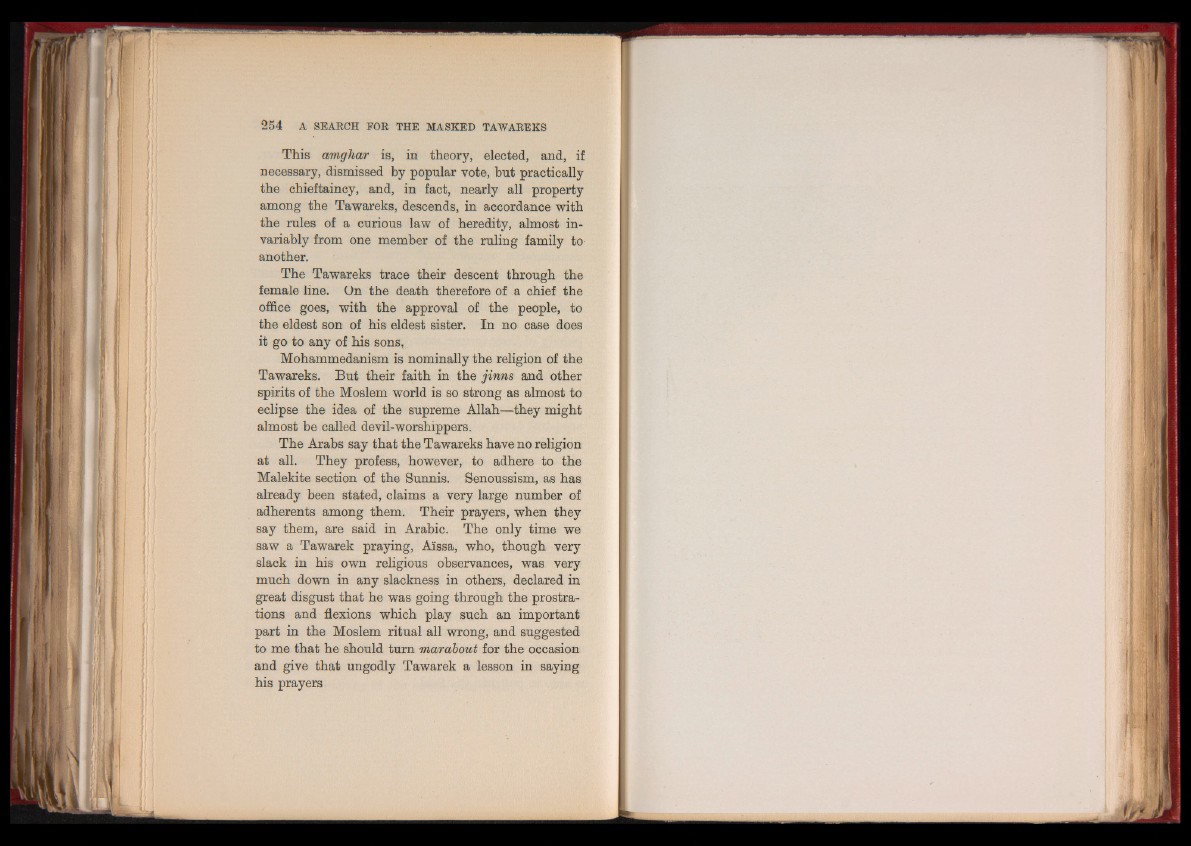
This amghar is, in theory, elected, and, if
necessary, dismissed by popular vote, but practically
the chieftaincy, and, in fact, nearly all property
among the Tawareks, descends, in accordance with
the rules of a curious law of heredity, almost invariably
from one member of the ruling family to
another.
The Tawareks trace their descent through the
female line. On the death therefore of a chief the
office goes, with the approval of the people, to
the eldest son of his eldest sister. In no case does
it go to any of his sons,
Mohammedanism is nominally the religion of the
Tawareks. But their faith in the jinns and other
spirits of the Moslem world is so strong as almost to
eclipse the idea of the supreme Allah—they might
almost be called devil-worshippers.
The Arabs say that the Tawareks have no religion
at all. They profess, however, to adhere to the
Malekite section of the Sunnis. Senoussism, as has
already been stated, claims a very large number of
adherents among them. Their prayers, when they
say them, are said in Arabic. The only time we
saw a Tawarek praying, Aissa, who, though very
slack in his own religious observances, was very
much down in any slackness in others, declared in
great disgust that he was going through the prostrations
and flexions which play such an important
part in the Moslem ritual all wrong, and suggested
to me that he should turn marabout for the occasion
and give that ungodly Tawarek a lesson in saying
his prayers